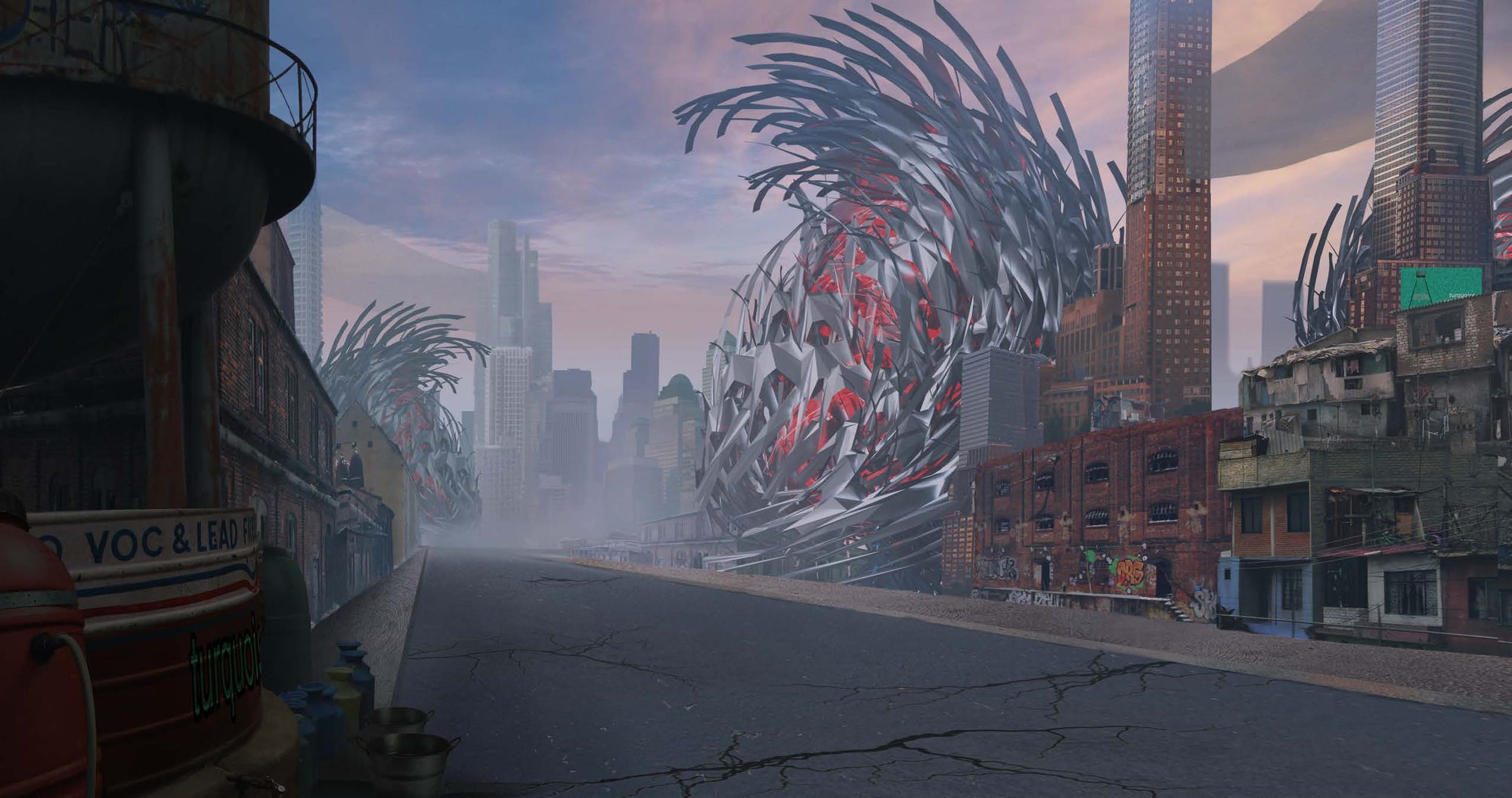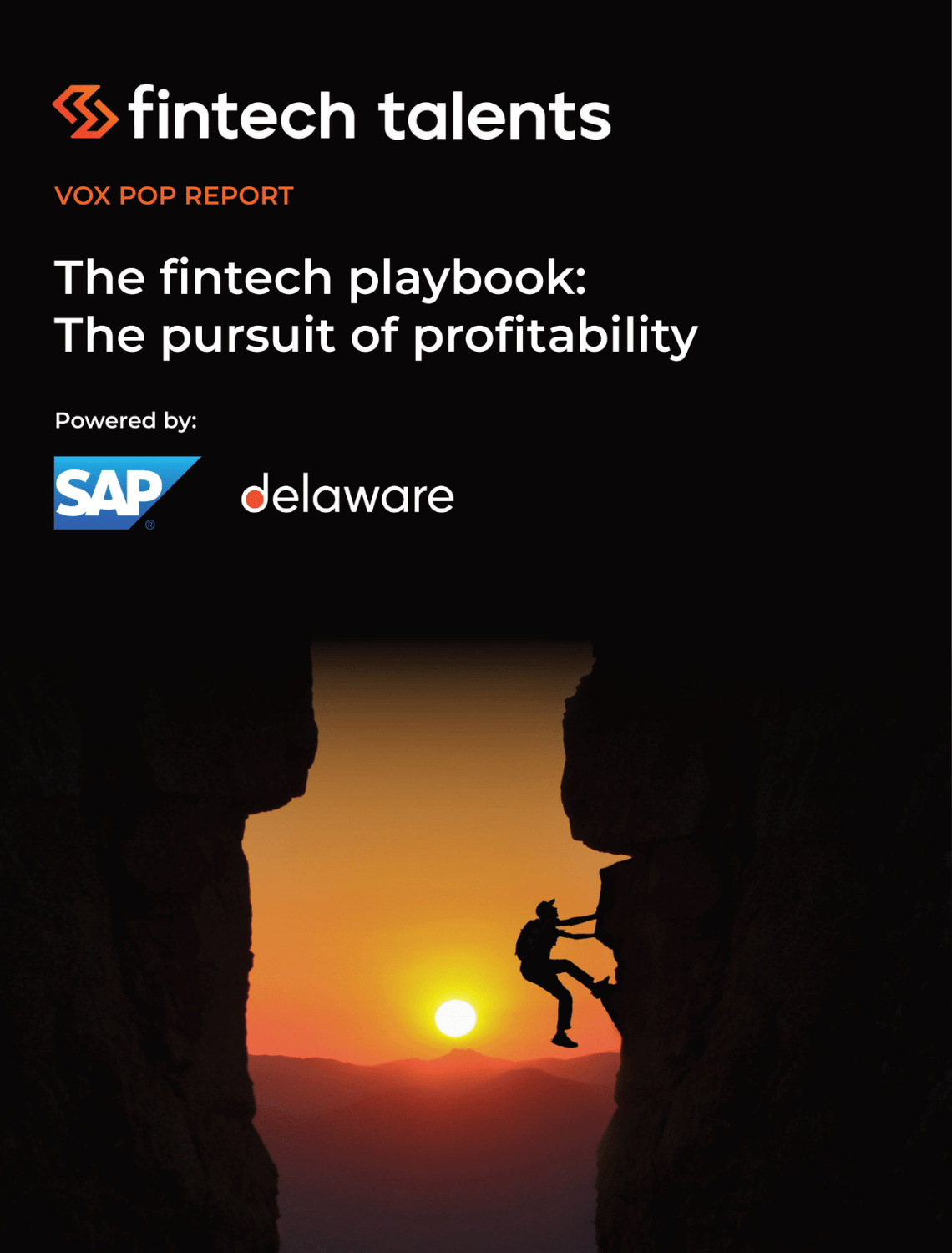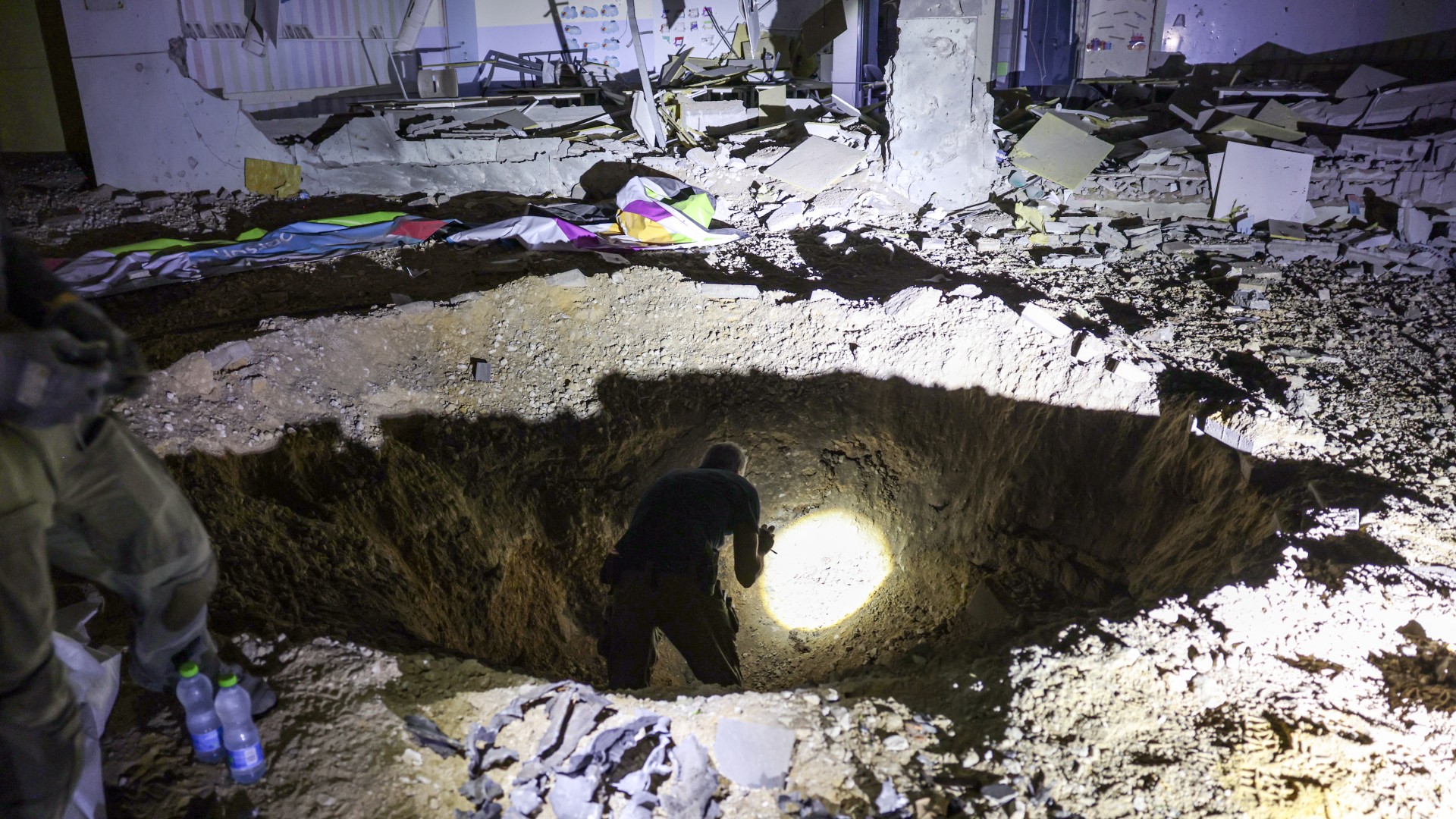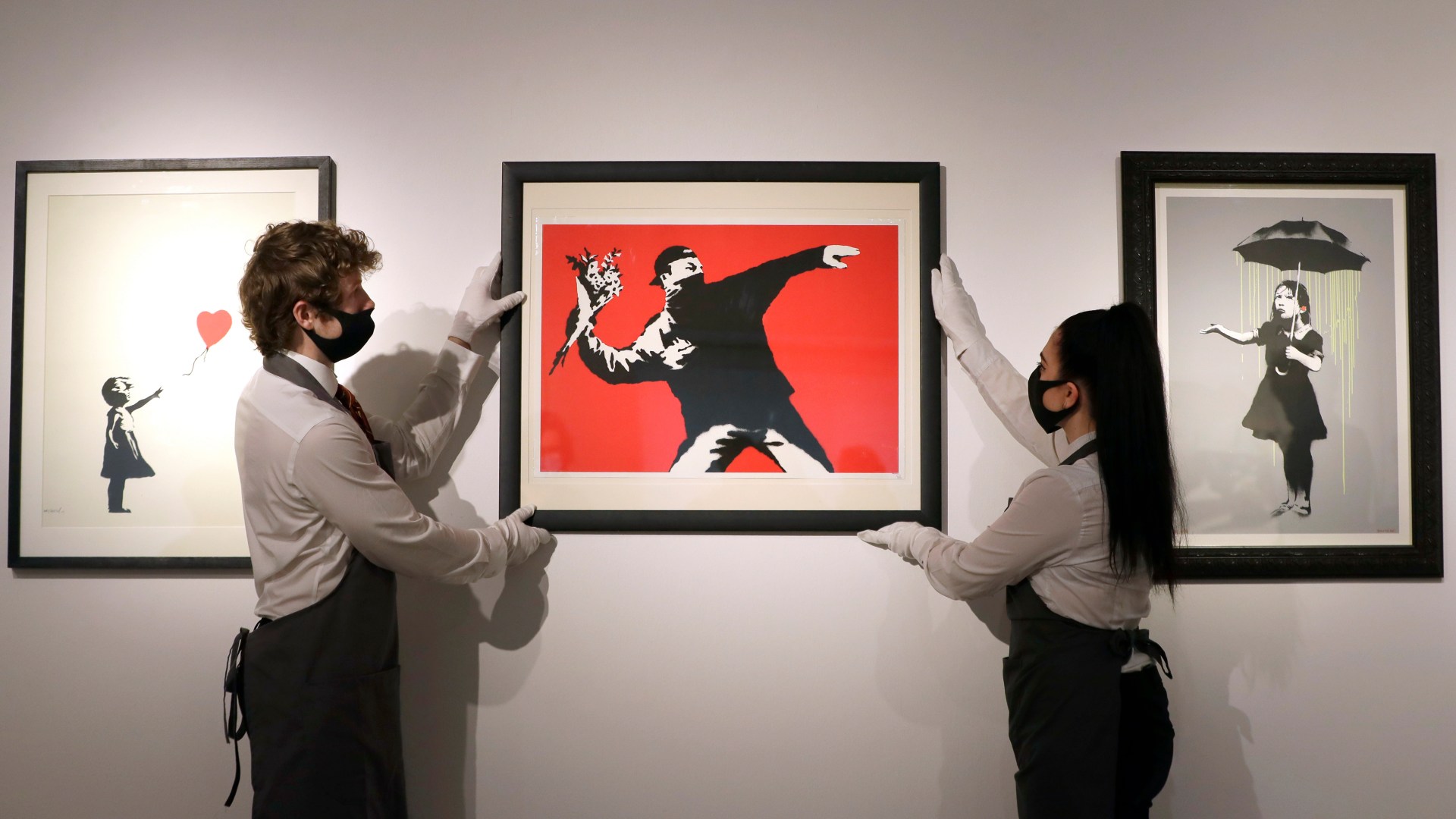Netflix's Black Mirror: 5 Real-World Parallels To The Dystopian Series

Table of Contents
The Erosion of Privacy in the Age of Surveillance (Keyword: Surveillance Technology)
The dystopian societies depicted in Black Mirror, particularly in episodes like "Nosedive" and "White Bear," are characterized by pervasive surveillance. This constant monitoring, fueled by advanced surveillance technology, impacts every aspect of citizens' lives. This resonates deeply with real-world concerns about mass surveillance and the unchecked collection of personal data.
Data Collection and Social Credit Systems:
- Facial recognition technology: Already widely deployed in various countries, facial recognition raises serious privacy concerns. The potential for misuse, including biased identification and unwarranted surveillance, mirrors the oppressive systems seen in Black Mirror.
- Location tracking: Our smartphones constantly track our movements, creating detailed profiles of our daily routines. This data, when aggregated and analyzed, can be used to predict our behavior and even influence our choices, a chilling echo of the social credit systems portrayed in the show.
- Data breaches: The frequency of data breaches highlights the vulnerability of our personal information. This constant threat undermines trust and reinforces the anxieties explored in Black Mirror regarding the security and misuse of our data.
[Link to a relevant news article about facial recognition] [Link to an academic study on the ethical implications of data collection]
The Influence of Social Media and Online Personas (Keyword: Social Media Influence)
Black Mirror masterfully explores the anxieties surrounding our online identities and the pursuit of validation through social media. Episodes like "Nosedive" and "White Christmas" vividly depict the curated self, the pressure to maintain a perfect online image, and the consequences of failing to meet societal expectations.
The Curated Self and Online Validation:
- Impact on mental health: The constant pressure to present a flawless online persona contributes to anxiety, depression, and low self-esteem. Studies link excessive social media use to negative mental health outcomes, mirroring the societal pressures depicted in Black Mirror.
- Rise of influencer culture: The power wielded by social media influencers reflects the social hierarchies and manipulation seen in the show. Influencers shape trends, opinions, and even purchasing decisions, highlighting the potential for manipulation inherent in online platforms.
- Algorithmic manipulation: Social media algorithms curate our feeds, often reinforcing existing biases and promoting echo chambers. This can lead to filter bubbles and limit exposure to diverse perspectives, echoing the controlled information environments seen in many Black Mirror episodes.
[Link to a statistic on social media usage and mental health]
Technological Dependence and Addiction (Keyword: Tech Addiction)
Black Mirror's "Black Museum" serves as a stark reminder of our growing dependence on technology. The episode explores the dark side of technological advancements, depicting how our reliance on devices can lead to addiction and a loss of control.
From "Black Museum" to Everyday Life:
- Smartphone addiction: The pervasiveness of smartphones has led to widespread tech addiction, characterized by compulsive checking, anxiety when disconnected, and difficulty managing time effectively. This mirrors the addictive nature of technology portrayed in Black Mirror.
- Impact on relationships: Excessive technology use can strain relationships, leading to feelings of neglect and isolation. The show often highlights the detrimental effects of technology on personal connections.
- Challenges of digital detox: Many struggle to disconnect from technology, highlighting the difficulty of breaking free from the cycle of addiction. Black Mirror often showcases the near-impossibility of escaping technology’s pervasive influence.
[Link to a resource on digital wellbeing] [Link to information on tech addiction treatment]
The Dangers of Artificial Intelligence (Keyword: AI Ethics)
Black Mirror consistently confronts the ethical dilemmas surrounding artificial intelligence. Episodes explore the potential dangers of autonomous systems, from self-driving cars to AI companions, prompting viewers to consider the implications of unchecked technological advancement.
Autonomous Systems and Ethical Dilemmas:
- Self-driving car accidents: The inevitable accidents involving self-driving cars force us to confront difficult ethical questions about programming algorithms to make life-or-death decisions. Black Mirror explores these dilemmas in gripping detail.
- Algorithmic bias: AI systems are trained on data that may reflect existing societal biases, leading to discriminatory outcomes. The show highlights this danger, emphasizing the need for fairness and accountability in AI development.
- Malicious use of AI: The potential for AI to be weaponized or used for malicious purposes is a recurring theme in Black Mirror, serving as a stark warning about the responsible development and deployment of AI.
[Link to an article on AI safety] [Link to ethical guidelines for AI development]
The Blurring Lines Between Reality and Simulation (Keyword: Virtual Reality Ethics)
Black Mirror's exploration of simulated realities, particularly in "White Bear," challenges our understanding of consciousness and reality itself. These episodes raise profound ethical questions about the nature of experience and the potential for manipulation within virtual worlds.
"White Bear" and the Simulated World:
- Ethical implications of VR: The immersive nature of virtual reality raises concerns about its potential for manipulation and psychological harm. Black Mirror explores these possibilities in disturbingly realistic scenarios.
- Potential for manipulation: Simulated realities can be used to control individuals' perceptions, thoughts, and actions, raising profound ethical questions about free will and autonomy. The show showcases the potential for abuse of this technology.
- Impact on our understanding of reality: The blurring lines between reality and simulation force us to question the nature of our own experiences and the very definition of reality. Black Mirror pushes us to consider the philosophical implications of simulated worlds.
[Link to a philosophical discussion on consciousness and simulation theory]
Conclusion
Netflix's Black Mirror offers a compelling vision of a technologically advanced future, one that is both alluring and terrifying. The five parallels explored above—surveillance technology, social media influence, tech addiction, AI ethics, and the blurring lines between reality and simulation—underscore the show's power as a cautionary tale. These real-world parallels serve as a stark reminder of the need for critical engagement with technology and a thoughtful consideration of its ethical implications. Consider the parallels between Black Mirror and your own life. Explore the ethical implications of artificial intelligence, social media, and surveillance technologies. Discuss Netflix's Black Mirror's real-world parallels with friends and family. To delve deeper, watch episodes like "Nosedive" (social media), "White Bear" (simulated reality), and "Metalhead" (AI). Let Black Mirror inspire a more critical and responsible approach to our technological future.

Featured Posts
-
 The Pressure Cooker Veterinarians And The Pursuit Of Profitability According To The Bbc
May 31, 2025
The Pressure Cooker Veterinarians And The Pursuit Of Profitability According To The Bbc
May 31, 2025 -
 Munguias Adverse Finding A Denial And The Road Ahead
May 31, 2025
Munguias Adverse Finding A Denial And The Road Ahead
May 31, 2025 -
 Comparative Military Strengths Assessing The Us And Chinas Military Capabilities
May 31, 2025
Comparative Military Strengths Assessing The Us And Chinas Military Capabilities
May 31, 2025 -
 Iconic Banksy Art Dubais Groundbreaking World News Event
May 31, 2025
Iconic Banksy Art Dubais Groundbreaking World News Event
May 31, 2025 -
 Sagging Housing Market Realtors Report Crisis Level Sales
May 31, 2025
Sagging Housing Market Realtors Report Crisis Level Sales
May 31, 2025
